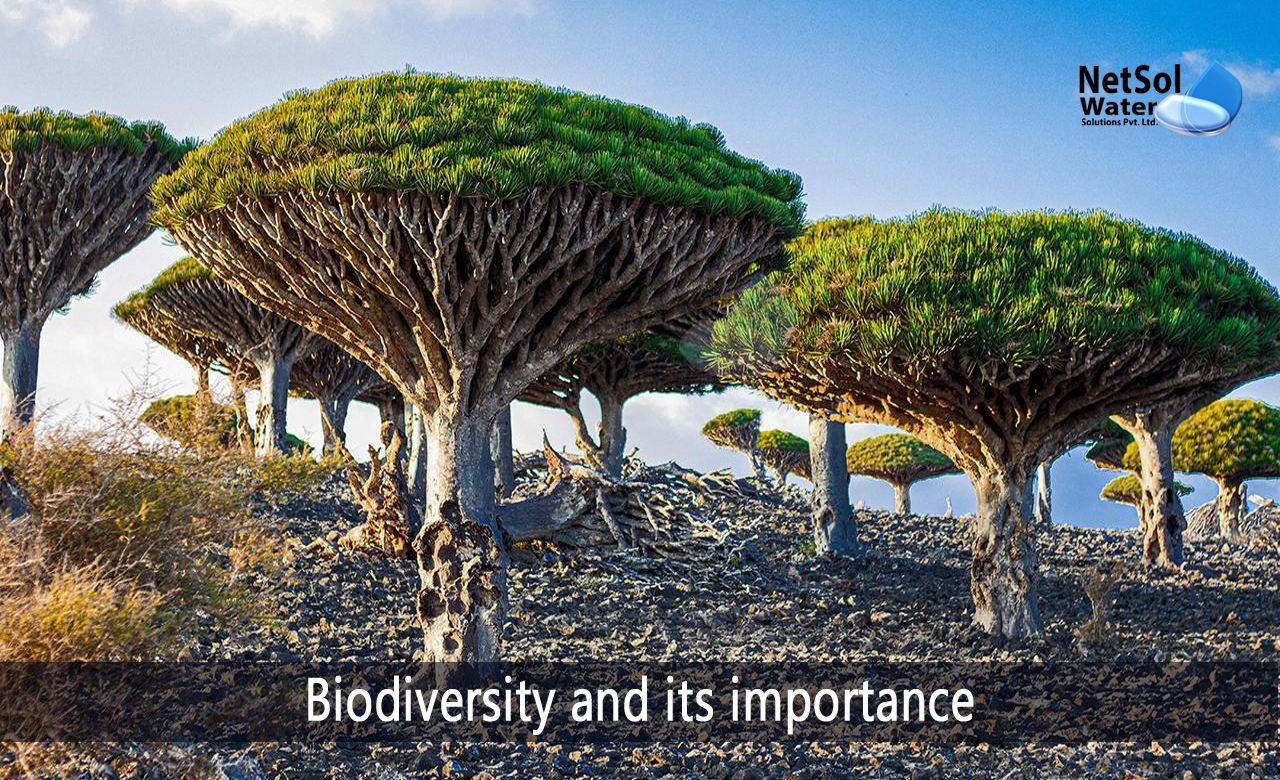The biodiversity that remains today is the result of millions of years of evolution, which created the planet as we know it today. The variety of life on earth and the different ways in which it is associated, are represented by biodiversity. We are totally reliant on the web of life, of which we are a vital part.
Let’s understand the concept of biodiversity and its importance.
What is Biodiversity and its importance?
In addition to referring to the ecological, evolutionary and cultural processes that support life, the term "biodiversity" also refers to the diversity of life on Earth at allscales, from genes to the ecosystems.
What does biodiversity contain?
All life forms, including humans and unknown species of bacteria, fungus, and invertebrates, are included in biodiversity. This goes beyond the kinds of species we think of as rare, endangered, or threatened.
Different forms of biodiversity
Based on taxonomy, all life on earth has been divided into categories such as plants, animals, birds, and microorganisms. These taxonomic groups which now are believed to contain 1.75 million recognized species, exhibit a wide range. However, other scientists have put up a figure of 13 million species, some of which may still remain unnamed.
The variation of genetic material that results from intensive breeding of crops and livestock in isolation, may also contribute to the existence of biodiversity within a species. Such genetic variation results from changes to the chromosomes' DNA, which contains the information necessary for the inheritance of traits.
Importance of biodiversity
Microbial variety serves as the final piece to complete the puzzle of the diversity of life on this planet, which is illustrated by the various types of creatures. Although, bacteria have existed since the beginning of life on Earth, understanding their importance in the process of evolution came much later. By enhancing species' adaptive abilities, microbes and their biochemical machinery have played a crucial role, in the survival of various species.
Similar to this, microbial diversity has had a significant impact on numerous anthropological activities, connected to industry and agriculture. Use of bacteria that encourage plant growth in fields, use of bacteria that produce antibiotics in the pharmaceutical industry, and many more are a few excellent instances of this.
Conclusion
Nature has always plagued us with issues that serve as a constant reminder of the imbalance, our ignorance has brought about. Every now and again, we turn to nature's pharmacy for a cure for a disease, or to look for better crops that can withstand biotic and abiotic stress. Therefore, it is crucial to protect biodiversity in order to maintain ecological harmony and replenish the biological resources, which served as the foundation for our civilization.
United Nations observes May 22 as International Day for Biological Diversity (IDB), in order to raise public awareness of biodiversity challenges. It is our duty to protect nature's treasures and to honour the local biodiversity.
How can we assist?
Netsol Water is committed to protecting the environment and its biodiversity. We offer a wide range of cutting-edge solutions, such as waste management, wastewater treatment, sewage treatment, effluent treatment, air pollution management, water management, etc., thus protecting biodiversity overall.
Netsol Water is Greater Noida-based leading water & wastewater treatment plant manufacturer. We are industry's most demanding company based on client review and work quality. We are known as best commercial RO plant manufacturers, industrial RO plant manufacturer, sewage treatment plant manufacturer, Water Softener Plant Manufacturers and effluent treatment plant manufacturers. Apart from this 24x7 customer support is our USP. Call on +91-9650608473, or write us at enquiry@netsolwater.com for any support, inquiry or product-purchase related query.



